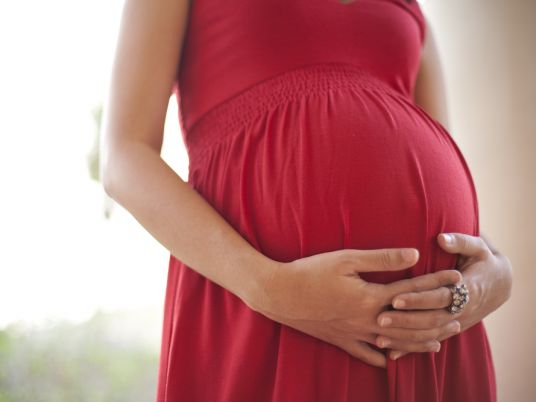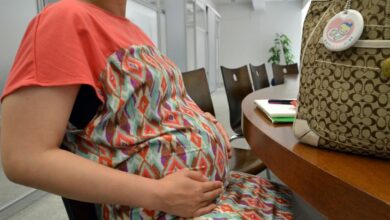
Consuming a high-fat diet during pregnancy can influence the community of microbes living in a baby's gut, according to new research published in the journal Genome Medicine on August 9.
The team of researchers from Baylor College of Medicine in the US had previously studied the effect of consuming a high-fat in pregnant primates, with this new study recruiting 157 pregnant women to see what would be the effect in humans. The participants were asked to answer a detailed dietary questionnaire to identify what type of diet they consumed during their pregnancy, with the information then used to estimate how much sugar, fat and fiber the mothers consumed during the latter part of the third trimester.
The results showed that the diets ranged from 14 to 55 percent fat, with the average diet consisting of 33 percent fat. The Institute of Medicine recommends a daily intake of fat between 20 and 35 percent. From this data the researchers divided the mothers whose fat intake was significantly different from the 33 percent average into two groups: the control group and the high-fat group.
Once the womens' babies were born, the researchers could then analyse their first stool sample to assess the type of gut bacteria present at birth. Stools were then analysed again when the babies reached four to six weeks. The team found that the babies of mothers who consumed a high-fat diet during the latter part of the third trimester had a gut microbiome that was distinctly different from that of babies who mothers were in the non-high-fat diet control group.
In addition the babies of the mothers who ate a high-fat diet had fewer numbers of Bacteroides microbes, both at birth and at four to six weeks of age, which could be of particular significance as a consistently lower level of Bacteroides in the gut could affect the ability to extract energy from food and the development of the immune system.
Although the study had a few limitations, including its use of self-reported data which can be subject to inaccuracies, the team concluded that the study did show a relatonship between a mother's diet and the microbiome in her baby's gut; however further studies are needed to asses how long-term these effects are.
Senior author Dr. Kjersti Aagaard also believes the results could provide further diet advice for pregnant women, commenting that "Diet is very amenable to change and women are highly motivated to make healthy changes during pregnancy. Traditionally, dietary interventions during pregnancy have focused on micronutrients, such as iron and folic acid. We speculate that there may be a sound argument to also discuss and estimate fat intake."




